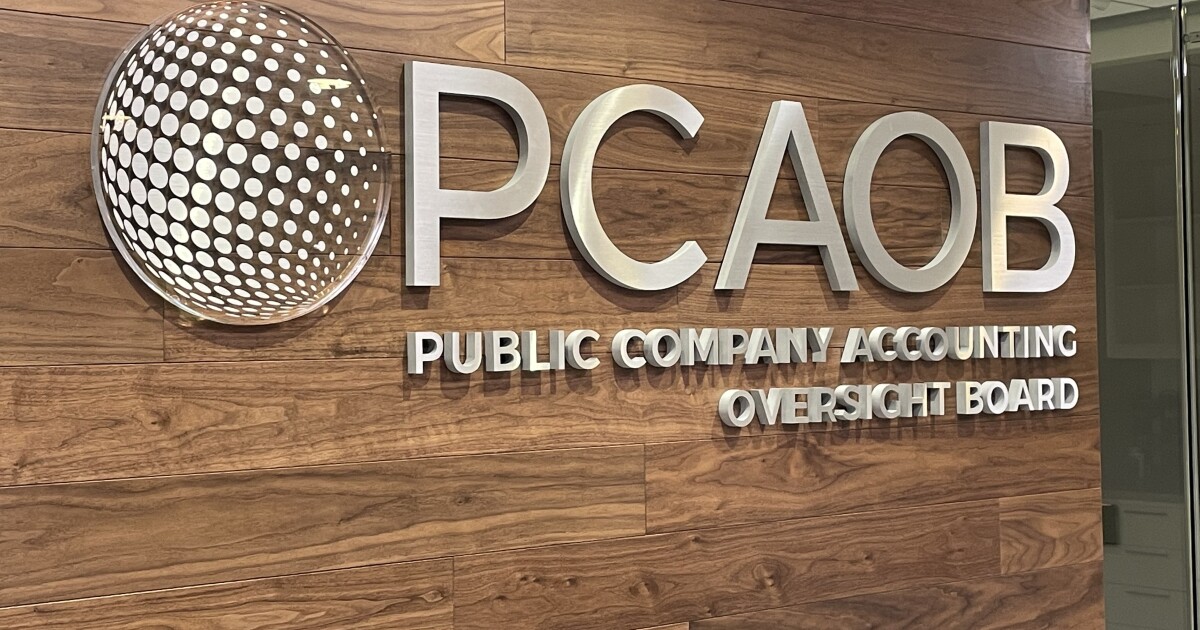The Public Company Accounting Oversight Board plans to host a series of five in-person forums this year, with different members of the board visiting cities including Chicago, Los Angeles, Denver, Miami and Jersey City.
The forums will focus on auditing in the small business environment and on auditing broker-dealers. The initial forum will feature PCAOB chair Erica Williams in Chicago on May 22. Another board member, George Botic, will be hosting a forum in Los Angeles this summer, followed by forums this fall hosted by board members Kara Stein (Denver), Christina Ho (Miami) and Anthony Thompson (Jersey City). The exact dates and locations for those four forums will be announced as those events get closer.
The PCAOB plans to livestream the forums in Chicago and Jersey City over the internet and recordings of all five forums will be made available on the PCAOB’s website for those won’t be able to attend in person.
“Smaller firms play an important role in our work to protect investors,” said Williams in a statement Wednesday. “These forums allow the PCAOB to share valuable resources and information with small firms to help them improve audit quality, while giving us a chance to hear from them directly about their unique needs and challenges.”
Some firms are likely to be giving the PCAOB board members an earful about some of its recent proposals. Last week, the PCAOB proposed two far-reaching standards on firm and engagement metrics and firm reporting, which together would impose new requirements for reporting on information such as audit resources, fees, governance structure, engagement metrics, workload, experience of audit personnel, financial information, any lawsuits and regulatory actions they’re facing, leadership, network membership and more. The PCAOB is already facing pushback from audit firms over its so-called NOCLAR proposal, which would toughen the requirements for auditors to be on the lookout for signs of fraud and noncompliance with laws and regulations at their clients, effectively putting them in the role of whistleblowers. The Center for Audit Quality organized a letter-writing campaign last year to spur comments opposing the proposal and a number of state CPA societies, CPA firms and business groups like the U.S. Chamber of Commerce registered their opposition to the proposals. The PCAOB pushed back the deadline for receiving comments and heard concerns and feedback for and against the NOCLAR proposal during a roundtable discussion webcast last month.
The Pennsylvania Institute of CPAs is among the groups expressing their opposition to the NOCLAR proposal. “This is one of the most important proposals that I’ve seen come out from standard-setters in my career,” said Allison Henry Allison Henry, PICPA’s vice president of professional and technical standards. “I think it highlights a significant issue that we have in terms of the expectation gap and the differences of perspective from what investors think that we provide in terms of assurance and what we actually are capable of providing.”
PICPA and other accounting organizations are concerned about the scope and the pervasiveness of what is actually being asked for by the PCAOB with the NOCLAR proposal. “When we work, for example, with attorneys, and in many cases, the legal profession, people expect that they are going to use conditional language, and they’re not going to give definitive answers in terms of what’s going to happen in the future,” said Henry. “But then they turn to the auditors, and it’s almost like they want absolute certainty, and absolute assurance, relative to what the opinion is driving at without any limitations whatsoever. And I get the sense from what is being proposed that they want that absolute assurance. They’re looking at what the investors want, and what is being proposed is impossible in terms of the scope.”
She explained her views in a recent article.
The PCAOB is likely to be hearing from auditors at those forums about such proposals. The forums are tailored to PCAOB-registered firms that audit smaller public companies or broker-dealers, giving firms the chance to interact directly with representatives from the PCAOB as well as other regulators in an educational setting. The PCAOB has held similar forms since 2004, and Thompson hosted them virtually in 2022 and 2023. This year marks the first time the forums will be held in person since 2019, as many such events went virtual due to the pandemic.
Participants at this year’s forums will receive a refresher on various auditing requirements as well as learn about new requirements that will become applicable in the near future. In addition to remarks from PCAOB board members, the agenda includes the following:
- Presentations by PCAOB staff from the Office of the Chief Auditor, the Division of Registration and Inspections, and the Division of Enforcement and Investigations;
- Illustrative examples related to revenue, critical audit matters, and fraud/journal entries, among other topics; and
- Presentations by staff of the Financial Industry Regulatory Authority and the Securities and Exchange Commission.
Registration is required for the May 22 forum in Chicago. There’s no fee to attend it either in-person or virtually, but advance registration needs to be done here. CPE credits will be available only for in-person attendees.
Forum attendees can submit questions in advance via email and attendees will also be able to submit questions during the forum. Registration info, event location and other details for the rest of the in-person forums this year will be announced closer to the date of each event.


 Economics1 week ago
Economics1 week ago
 Economics1 week ago
Economics1 week ago
 Economics1 week ago
Economics1 week ago
 Finance1 week ago
Finance1 week ago
 Blog Post1 week ago
Blog Post1 week ago
 Economics1 week ago
Economics1 week ago
 Personal Finance1 week ago
Personal Finance1 week ago
 Economics1 week ago
Economics1 week ago












